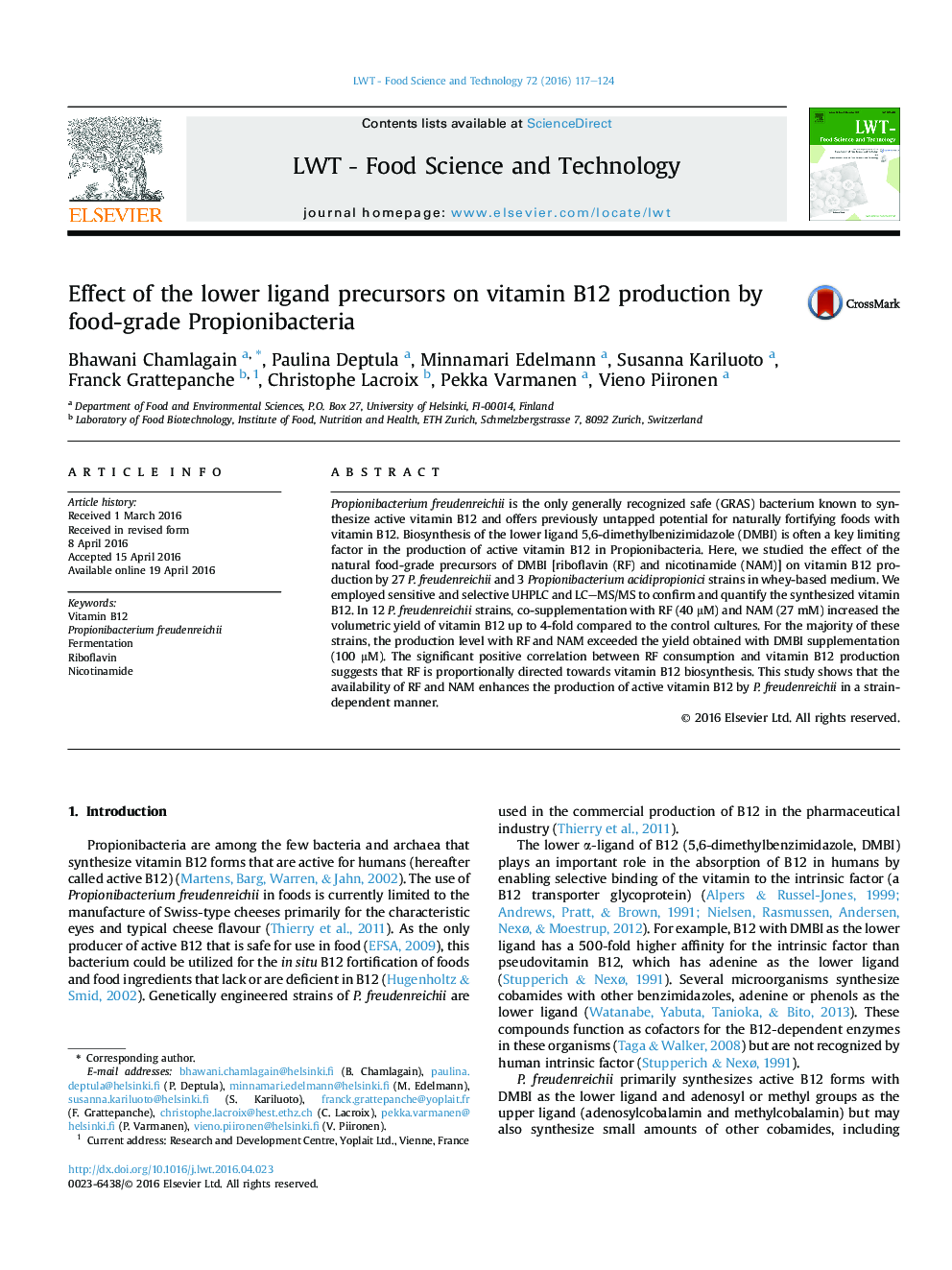| Article ID | Journal | Published Year | Pages | File Type |
|---|---|---|---|---|
| 4563264 | LWT - Food Science and Technology | 2016 | 8 Pages |
•UHPLC–UV/Vis–MS confirmed active vitamin B12 production by Propionibacterium freudenreichii strains.•B12 yield was strain dependent.•Supplementation with riboflavin and nicotinamide increased B12 yield up to 4-fold.•Significant positive correlation was observed between riboflavin consumption and B12 production.•Increasing in situ B12 production is possible with added natural precursors in food matrices.
Propionibacterium freudenreichii is the only generally recognized safe (GRAS) bacterium known to synthesize active vitamin B12 and offers previously untapped potential for naturally fortifying foods with vitamin B12. Biosynthesis of the lower ligand 5,6-dimethylbenizimidazole (DMBI) is often a key limiting factor in the production of active vitamin B12 in Propionibacteria. Here, we studied the effect of the natural food-grade precursors of DMBI [riboflavin (RF) and nicotinamide (NAM)] on vitamin B12 production by 27 P. freudenreichii and 3 Propionibacterium acidipropionici strains in whey-based medium. We employed sensitive and selective UHPLC and LC–MS/MS to confirm and quantify the synthesized vitamin B12. In 12 P. freudenreichii strains, co-supplementation with RF (40 μM) and NAM (27 mM) increased the volumetric yield of vitamin B12 up to 4-fold compared to the control cultures. For the majority of these strains, the production level with RF and NAM exceeded the yield obtained with DMBI supplementation (100 μM). The significant positive correlation between RF consumption and vitamin B12 production suggests that RF is proportionally directed towards vitamin B12 biosynthesis. This study shows that the availability of RF and NAM enhances the production of active vitamin B12 by P. freudenreichii in a strain-dependent manner.
